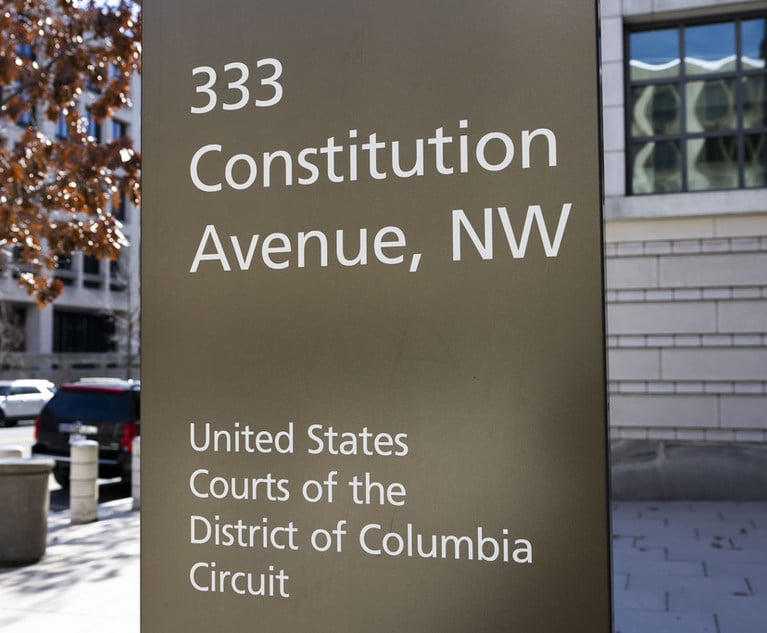 The E. Barrett Prettyman U.S. Courthouse, home of the U.S. Court of Appeals for the District of Columbia Circuit and the U.S. District Court for the District of Columbia, on January 12, 2022. Photo: Diego M. Radzinschi/ALM
The E. Barrett Prettyman U.S. Courthouse, home of the U.S. Court of Appeals for the District of Columbia Circuit and the U.S. District Court for the District of Columbia, on January 12, 2022. Photo: Diego M. Radzinschi/ALM
With the future of federal credit union oversight in limbo, the plaintiffs in a high-profile lawsuit challenging President Donald Trump’s removal of two NCUA Board members are urging swift court action ahead of a scheduled board meeting on July 24.
In a Joint Status Report filed Monday, attorneys for former NCUA Board Members Todd Harper and Tanya Otsuka asked the U.S. District Court for the District of Columbia to rule on pending motions for summary judgment before the board reconvenes. They argue the agency has lacked a quorum since the firings on April 15 and cannot lawfully carry out board functions.
Recommended For You
“The Board has been without a quorum to perform certain functions since April 15,” the plaintiffs stated, adding that resolving the case on summary judgment would prevent piecemeal appeals and offer a complete record for potential appellate review.
Defendants, including Trump and NCUA Chairman Kyle Hauptman, argue that a single board member constitutes a quorum “when there are no other members,” citing federal statute. They also noted that the July 24 meeting will be informational only, with no votes scheduled.
Meanwhile, the plaintiffs also filed a separate motion opposing a request from Jeffrey Moats to file an amicus brief supporting the defendants. They contend the motion was untimely and merely rehashes arguments already made. “With one exception, Moats seeks simply to rehash defendants’ legal arguments,” the plaintiffs wrote.
Moats is the former CEO of Edinburg Teachers Credit Union in Texas and a current respondent in an NCUA enforcement proceeding. In December 2024, the NCUA accused him of fiduciary misconduct and sought sanctions including restitution, civil penalties, and a ban from future credit union roles. Moats filed a separate lawsuit challenging the NCUA’s enforcement process as unconstitutional and is appealing a decision on jurisdiction in the Fifth Circuit.
In the June 9 motion, Moats sought permission to file an amicus brief supporting the defendants in Harper v. Trump, asserting that his case is directly affected by the outcome. He argues that in a related Texas lawsuit, Harper "stipulated" that NCUA Board members are removable at will, a point Moats believes contradicts Harper’s current filings. Moats believes this previous stipulation undercuts any argument against the president’s removal authority and is therefore pertinent to the central legal questions in Harper v. Trump.
Attorneys for Harper and Otsuka disagree and dismissed his claims as legally irrelevant, emphasizing that prior litigation cited by Moats did not result in a binding judgment and involved different parties.
© Touchpoint Markets, All Rights Reserved. Request academic re-use from www.copyright.com. All other uses, submit a request to [email protected]. For more inforrmation visit Asset & Logo Licensing.








